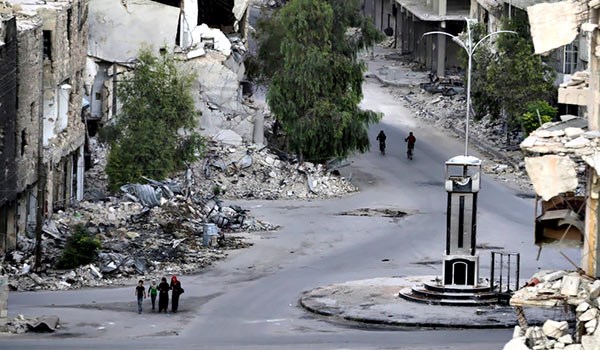

The Arabic-language Enab al-Baladi news website quoted Othman Sultan, an engineer working for the project, as saying that Nadhah region North of al-Bab has been selected as the ultimate site for building this new town.
He added that the town will have two districts; one with 400 buildings stretching over a 2km area, and another one that will be comprised of 311 four-story buildings.
According to Sultan, the first district will include four schools and the second one will have three. Also a grand mosque, two prayers rooms and a hospital will be built in every district.
This is while, Hamza Tekin, a journalist with close links to the Turkish government, confirmed Sultan’s remarks, and said construction of the town will take 6 months.
But housing experts believe that the project could be accomplished in a period no less than 3 years, specially considerring that it is located in a war zone.
Meantime, political analyst Seyed Mostafa Khoshcheshm said Turkey would either stage a construction show in the region to justify and ensure its mid-term presence in the region under humanitarian grounds, or more likely continue building the town in pursuit of long-term objectives.
“Turkey is pursuing covert political and demographic objectives through this move. If accomplished, Turkey will certainly try to relocate a large number of Arab refugees to Al-Bab as it will help them get rid of a portion of its Syrian refugees whose concentration on Syrian soil would then become a burden for the international community. Secondly, Turkey would change the population structure of Al-Bab in favor of the Arabs to push the Kurdish population further to the East. And the last but not the least, it could start its safe zone plan that has recently received US President Donald Trump’s approval, all through this single move,” Khoshcheshm said.
“Given the Syrian government’s strong opposition to the Turkey and US-backed safe zone plan that envisages a belt in Northern Syria to accomodate the refugees whose security, according to the plan, should be provided by the militant groups, it would be strange to see Damascus, Tehran and Moscow agree to the Turkish plan in Al-Bab unless they receive the needed guarantees first,” he concluded.
The Turkish army’s chief of staff announced late in February that Ankara-backed militants had taken full control of al-Bab in Aleppo province after months of fighting.
Turkey declared in August 2016 that its army has launched ‘Euphrates Shield’ military operation in Syria, as Ankara claims that it has begun to cleanse the ISIL terrorists from its border with the Arab country. But, despite Ankara’s allegations, Turkish military forces support militant groups in Northern Syria, and fight against Kurdish forces in the region.
Damascus had condemned Ankara’s military operation and entry of Turkish special forces and tanks into Syria.
The Turkish army troops have sustained heavy losses and casualties during their military operation in the Syria’s territory, while the Turkish airstrikes as well as artillery attacks by the Turkish army and the Ankara-backed Euphrates Shield Operation militants have killed and wounded hundreds of civilians in recent months.
Furthermore, The Kurdish-led Syrian Democratic Forces (SDF) have started the ‘Euphrates Rage’ Operation to capture ISIL’s de facto capital of Raqqa in November 2016.







